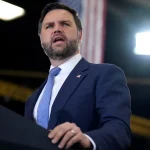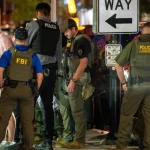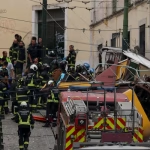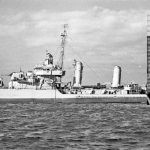The fight against narco-terrorism has once again entered the global spotlight after a recent U.S. Navy strike on a Venezuelan vessel allegedly tied to drug cartels. The operation, which captured international headlines, was followed by strong words from Pete Hegseth, a U.S. Army veteran and political commentator known for his unapologetic stance on national security. Hegseth’s warning to narco-terrorists reverberated not only across the United States but also in Latin America, where the drug trade remains deeply entrenched in politics, economics, and violence.
- The U.S. Navy Strike and Its Immediate Impact
- Pete Hegseth’s Warning to Narco-Terrorists
- The Growing Threat of Narco-Terrorism in Latin America
- Geopolitical Implications for U.S.-Venezuela Relations
- Hegseth’s Broader Argument on National Security
- The Human Cost of the Drug Trade
- Military Strategy and the Future of Counter-Narcotics Operations
- Expert Opinions on the Strike and Hegseth’s Warning
- FAQs
- What triggered the U.S. Navy strike on the Venezuelan boat?
- Why did Pete Hegseth issue a warning to narco-terrorists?
- How is Venezuela connected to narco-terrorism?
- What are the risks of escalating U.S. military actions in Latin America?
- Can military strikes alone solve the drug trafficking problem?
- Conclusion
This event is more than just a military engagement. It underscores the ongoing battle against transnational crime, the role of the U.S. military in safeguarding international waters, and the geopolitical tensions involving Venezuela—a nation long accused of enabling drug trafficking networks. To fully understand the weight of Hegseth’s remarks, it is essential to examine the context of the strike, the broader implications for regional security, and the enduring threat posed by narco-terrorist organizations.
The U.S. Navy Strike and Its Immediate Impact
The U.S. Navy confirmed that its forces targeted a Venezuelan boat suspected of transporting narcotics through international waters. According to military sources, the vessel attempted evasive maneuvers before being intercepted, sparking a brief but intense exchange. The strike resulted in the vessel’s destruction, with intelligence reports later suggesting that the boat had been part of a larger trafficking network tied to cartels operating in South America.
Military analysts highlighted the precision of the operation, emphasizing that it showcased America’s readiness to confront threats even far from its own shores. The Caribbean Sea and the waters near Venezuela have long been hotspots for drug smuggling routes, with cartels using sophisticated tactics, including semi-submersible submarines and heavily armed convoys, to bypass interdiction efforts.
For Venezuela, the incident further complicates its already strained relations with Washington. The Venezuelan government condemned the strike, calling it a violation of sovereignty, while U.S. officials insisted the operation was lawful under international maritime security protocols.
Pete Hegseth’s Warning to Narco-Terrorists
Following the strike, Pete Hegseth issued a stark warning to narco-terrorists, stressing that the United States will not tolerate threats to its citizens, borders, or allies. His words carried the weight of both his military background and his growing influence as a national security commentator.
Hegseth framed the strike not as an isolated military maneuver but as a clear message: drug cartels and their state sponsors will be confronted with decisive force. In his commentary, he argued that narco-terrorists undermine U.S. security not only through the smuggling of dangerous narcotics but also by funding networks that fuel violence, corruption, and instability throughout the Western Hemisphere.
His statement resonated with many Americans who have seen the devastating effects of drug addiction and cartel violence within their communities. At the same time, it raised questions about whether the U.S. is escalating its military role in Latin America—a region historically wary of American interventions.
The Growing Threat of Narco-Terrorism in Latin America
Narco-terrorism has evolved into one of the most pressing security challenges in the Americas. Cartels, once viewed merely as drug suppliers, now function as quasi-governments in parts of Mexico, Colombia, and Venezuela. They levy taxes, control territories, and maintain private armies equipped with military-grade weapons.
According to the United Nations Office on Drugs and Crime, nearly 90% of the cocaine entering the United States passes through Central America and the Caribbean. Venezuela’s porous borders and political instability have made it a critical transit hub for these operations. Reports from the U.S. State Department have long alleged that senior Venezuelan officials, including members of the military, have colluded with drug traffickers.
This combination of state complicity and cartel power creates a volatile environment where narco-terrorists can operate with impunity. By striking a Venezuelan vessel, the U.S. Navy sent a strong signal that such networks will face military consequences.
Geopolitical Implications for U.S.-Venezuela Relations
The U.S.-Venezuela relationship has been marked by decades of tension, sanctions, and mutual distrust. Washington has consistently accused the Venezuelan government of enabling criminal organizations, while Caracas has portrayed U.S. actions as imperialist aggression. The recent naval strike and Hegseth’s subsequent warning risk escalating these hostilities.
Experts suggest that Venezuela may respond with heightened rhetoric, potential naval patrols, or even by deepening alliances with U.S. rivals such as Russia, China, and Iran. In fact, Russia has previously deployed military advisors and equipment to Venezuela, while China has invested heavily in its oil sector. This creates the potential for drug trafficking issues to merge with great-power competition, complicating U.S. strategies in the region.
Hegseth’s Broader Argument on National Security
Hegseth’s comments extend beyond Venezuela. His broader argument highlights the need for America to project strength in defending its borders and interests abroad. He often emphasizes that narco-terrorism is not merely a foreign issue—it directly affects American families. Fentanyl, cocaine, and heroin flooding into U.S. communities are sourced largely from Latin America, often transported by networks similar to the one targeted in the recent strike.
In this context, Hegseth argues that decisive military action is not only justified but necessary. Critics, however, caution that militarized approaches alone cannot solve the problem. They argue that without addressing corruption, poverty, and governance failures in Latin America, strikes and warnings will only provide temporary relief.
The Human Cost of the Drug Trade
The human toll of narco-terrorism is staggering. In the United States, the Centers for Disease Control and Prevention (CDC) reported that more than 107,000 Americans died from drug overdoses in 2021 alone. Many of these deaths were linked to substances smuggled through the same networks now under scrutiny.
Meanwhile, in Latin America, entire communities are destabilized by cartel violence. In Mexico, homicide rates often soar in areas contested by rival cartels, while in Venezuela, civilians face extortion, kidnappings, and corruption tied to the drug trade. The recent strike is therefore not just a military story—it is also a humanitarian one, shedding light on the broader struggle to protect innocent lives from the consequences of narco-terrorism.
Military Strategy and the Future of Counter-Narcotics Operations
The U.S. has long relied on a combination of military, law enforcement, and diplomatic strategies to combat narco-terrorism. Operations such as Operation Martillo in the Caribbean and Central America have sought to intercept shipments before they reach U.S. shores. The Navy’s recent strike is an extension of this approach, demonstrating a willingness to use force when necessary.
Moving forward, experts believe the U.S. may increase joint operations with allies such as Colombia and Brazil, while also seeking closer cooperation with Caribbean nations. Technological advancements, including drones, surveillance satellites, and artificial intelligence, are expected to play a growing role in tracking and intercepting traffickers.
At the same time, calls for balancing military action with development aid are likely to intensify. Without offering alternatives to communities that rely on the drug trade for survival, the cycle of violence may persist.
Expert Opinions on the Strike and Hegseth’s Warning
Security analysts have weighed in on both the strike and Hegseth’s subsequent remarks. Retired Admiral James Stavridis, former Supreme Allied Commander of NATO, noted that naval operations against narco-terrorists send an important deterrent message but must be paired with intelligence-sharing and regional cooperation.
Meanwhile, political scientist Dr. Ana María Salazar, an expert on Latin American security, warned that aggressive U.S. actions risk deepening anti-American sentiment in the region. She argued that while Hegseth’s warning resonates with domestic audiences, it could be interpreted in Latin America as a justification for interventionism.
This tension highlights the delicate balance Washington must strike between protecting its citizens and respecting the sovereignty of neighboring nations.
FAQs
What triggered the U.S. Navy strike on the Venezuelan boat?
The strike was carried out after intelligence reports indicated that the vessel was part of a drug trafficking network transporting narcotics through international waters.
Why did Pete Hegseth issue a warning to narco-terrorists?
Hegseth used the incident to stress that the United States will respond decisively to threats posed by cartels and their state sponsors, framing the issue as a direct threat to U.S. national security.
How is Venezuela connected to narco-terrorism?
Venezuela has long been accused by U.S. officials of enabling drug trafficking, with reports suggesting that senior government and military figures have colluded with cartels.
What are the risks of escalating U.S. military actions in Latin America?
Escalation could strain diplomatic relations, provoke retaliation, and potentially draw in global powers aligned with Venezuela, such as Russia and China.
Can military strikes alone solve the drug trafficking problem?
Experts agree that while military strikes can disrupt networks, they must be combined with efforts to address corruption, poverty, and governance issues in Latin America to achieve long-term solutions.
Conclusion
The U.S. Navy strike on a Venezuelan boat and Pete Hegseth’s subsequent warning to narco-terrorists have reignited the global conversation on the fight against transnational crime. More than just a tactical maneuver, the incident highlights the growing reach of narco-terrorism, the fragile geopolitics of U.S.-Venezuela relations, and the enduring human cost of the drug trade.
Hegseth’s uncompromising stance resonates with many who see the drug epidemic as an existential threat to American security. Yet the path forward is complex. Strikes may deliver short-term victories, but without deeper reforms and international cooperation, the war on narco-terrorism risks becoming a perpetual conflict. What remains clear, however, is that the United States is determined to confront these networks—and as Hegseth warned, narco-terrorists should take note.











